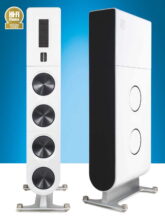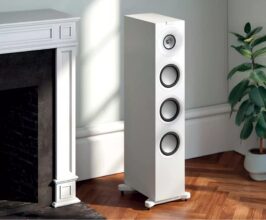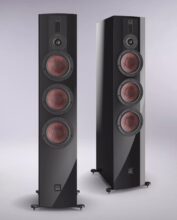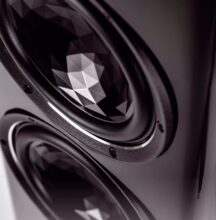PMC Prodigy 5 Review: Special one
Nick Tate auditions this interesting compact British floorstanding speaker that has nothing to do with fire starters… Read our PMC Prodigy 5 review.
In a hi-fi market full of floorstanding speakers, what’s the point of another one? When PMC decided to design its Prodigy 5, it must have asked this very question. The answer was simple: because it’s more different to the best of the rest at this price than you might perhaps expect.
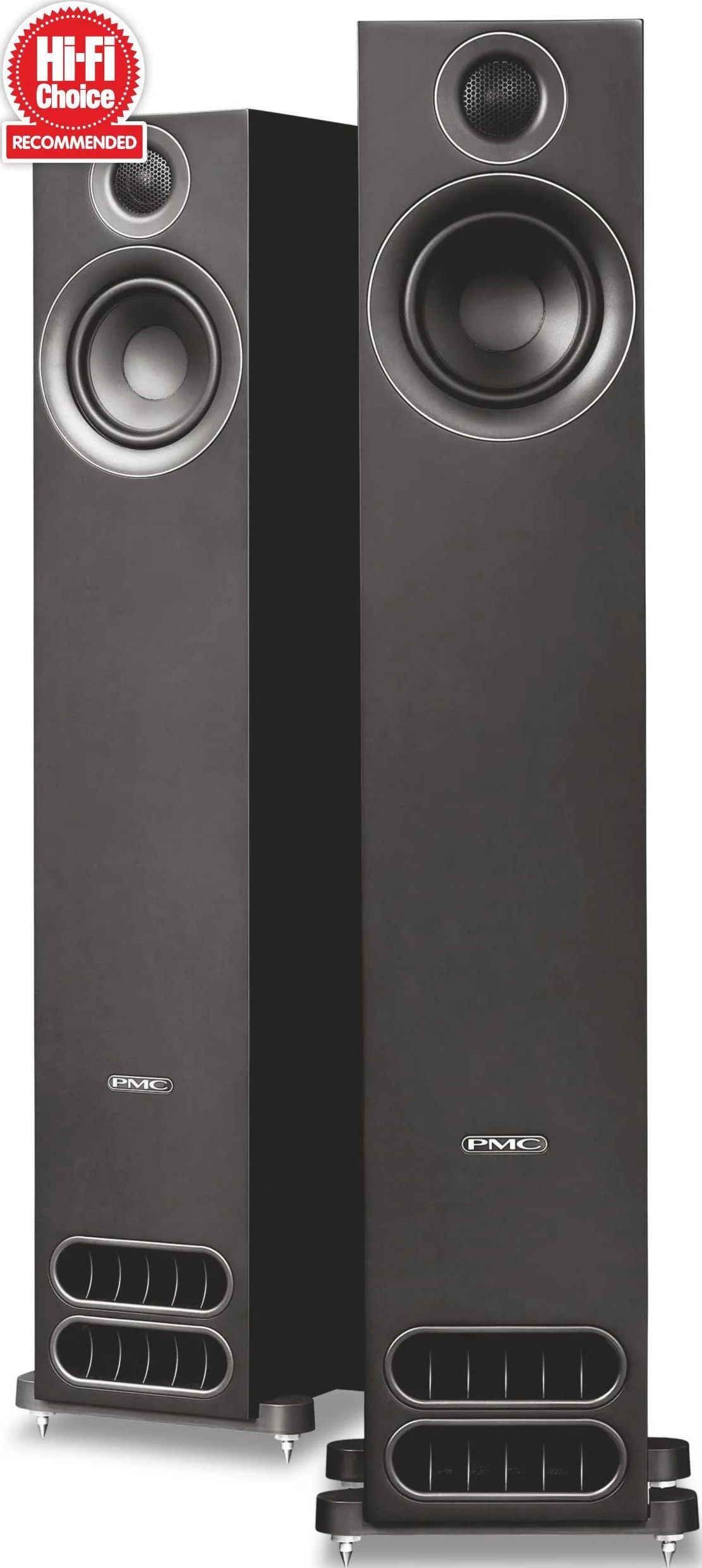
This compact floorstander is something of a wolf in sheep’s clothing. If we’re being brutally frank, it doesn’t look as impressive as many of its price rivals. It’s not that big, it’s not that heavy and nor is it shiny or snazzy. Instead, think of the Prodigy 5 as a big PMC floorstander that’s been shrunk in the wash. It uses many of the company’s pre-existing parts – and, of course, all of its know-how and decades-long experience.
Interestingly, this entry-level speaker is made in Luton, Bedfordshire. Nowadays, few affordable speakers from any UK, North American or European companies are made outside China. PMC’s Keith Tong tells me:
PMC Prodigy 5 Tech Specs
| Product | PMC Prodigy5 |
| Origin | UK |
| Type | 2-way floorstanding loudspeaker |
| Weight | 10 kg each |
| Dimensions (WxHxD) | 165 x 905 x 237 mm |
| Features | – 27mm soft dome tweeter |
| – 133mm mid/bass driver | |
| Claimed Sensitivity | 87.3dB/1W/1M (6 ohm) |
| Distributor | PMC Speakers |
| Website | https://www.pmc-speakers.com/ |
It has an articulate and dynamic sound that goes loud easily with low distortion
“Creating a model with all the benefits and tech of our high-end products in a more affordable package was a big challenge, and doing all this in the UK was no mean feat.”
As you would expect for PMC, this is a transmission line design. When done properly, this results in a deeper and tighter bass than bass reflex-ports as the drive units breathe through a long ‘tunnel’ type vent. PMC’s Advanced Transmission Line bass loading technology uses a 1.96m-long internal transmission line carefully damped with acoustic material. This absorbs
upper bass energy and higher frequencies, meaning the drive units don’t put so much energy into the cabinet. Meanwhile, the lowest frequencies are allowed to pass down the line and emerge from the front vents in the same polarity as the bass unit’s output, so that the vents act like a second bass driver. Twin Laminair vents at the bottom of the front baffle provide an orderly flow of air outwards into the room.
PMC’s 27mm soft-dome tweeter and natural fibre LT 133mm mid/bass driver are fitted. The crossover is a relatively simple affair with steep, 12dB per octave filters and a 1.7kHz change-over point. It’s claimed to be of very high quality and uses a military-grade glass-fibre board with pure copper tracks.
The PMC Prodigy 5 comes in a Silk Black matte finish and magnetically attached grilles cost extra. It looks neat, unprepossessing and functional. It’s not especially heavy for its price either, but does feel solid nonetheless. I employ a range of different amplifiers to drive it, including Musical Fidelity’s M8xi (HFC 465).
Sound quality
This is one of the rare cases of a speaker that sounds more impressive than it looks. There’s a Tardis-like transformation, as something small on the outside suddenly shape-shifts into an altogether larger entity. The result is that it really rocks the house, but with surprising refinement, control and poise throughout.
It’s classic, quintessential PMC. If you’ve heard any of the company’s more expensive speakers, you’ll know this means a punchy, driving bass that’s deeper and tighter than many price rivals. It also means an articulate and dynamic sound that goes loud easily and shows very low distortion. Alongside all of this, there’s a lot of clarity in the midband and detail up top, regardless of the type of music you choose to play on it.
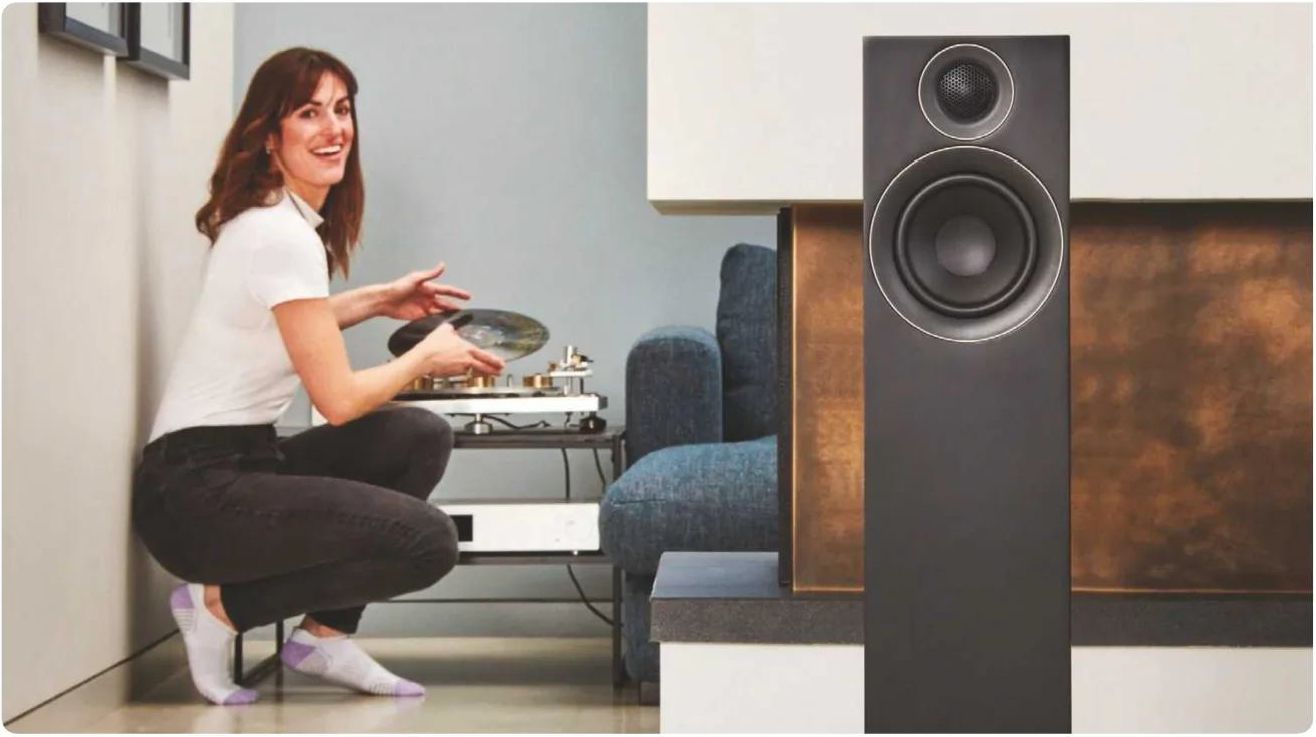
It’s with powerful rock music, or gut-thumping electronic dance that the Prodigy 5 works best. I am left scratching my head when thinking about any price rival that can match it, let alone better it. Cue up some deep house from the early-Nineties, in the shape of Hyper Go Go’s Never Let Go, and the PMC seems as if it was bom to play this music.
It thrives on the challenge of reproducing the track’s repetitive, pulsating beat, which is underpinned by a thumping electronic bass sound. So many rivals at this price either have slow attack transients or lots of bottom end overhang – which blurs one low note into the next. The PMC Prodigy 5 sounds crisp and lithe in the bass, and tuneful too. This gives the rest of the track permission to be huge fun. It’s far from a high-fidelity recording, yet the speaker powers the groove along, matching the bass beat with the midrange hi-hat perfectly.
Tonally it’s very well done. You’re never going to get electrostatic levels of midband clarity and finesse at this price, but still it makes a serious attempt at resolving the track’s inner detail. Feed it a far better recording, such as Selling England By The Pound by Genesis, and it raises its game accordingly. This classic prog rock is tonally dry, but full of detail. The PMC handles Peter Gabriel’s voice with good grace. It’s fractionally more nasal than some price rivals like Acoustic Energy’s AE509, but we’re really splitting hairs.
The main thing is that it integrates its two drive units very well, giving a wide window into the music. The PMC Prodigy 5 focuses on the rhythmic phrasing of the lead vocal line, as well as that of the backing musicians. At the same time, it’s very good at intimating small dynamic inflections, making the track sound more dramatic. It also recreates the rudimentary stereo soundstage well. When given a modem recording, you hear this more. The ambient electro of Fragile State’s Every Day A Story is beautifully carried, with an expansive soundstage the PMC really lets flourish.
The Prodigy 5 isn’t a speaker that confines things or tries to put a lid on them. Rather it lets the music breathe as best it can – considering its relatively small size. Its combination of scale and stage depth allied to fluid rhythms makes for an articulate and erudite delivery. It injects a zest into everything and there’s never a dull moment whatever you choose. Its transmission line loading plays, I suspect, a key part in this and the benefits aren’t just confined to bass.
Compared with more high-end designs in the £-plus price bracket, it can appear a little opaque in the midband, with a certain tonal ‘patina’ that marks it out as being less transparent than is ideal. Yet this never interferes with its basic job. The human ear soon relaxes to enjoy the positive aspects of its performance. The massed strings in the first movement of Haydn’s Creation, for example, have a satisfying sheen and lots of depth and body. Certainly, this speaker’s character doesn’t detract from acoustic recordings. Indeed, its natural speed and dynamic alacrity make for great fun.
HOW IT COMPARES
Acoustic Energy’s AE509 is surprisingly similar in design aims-it’s a fun and engaging listen from a relatively compact package. Although the two have a different sound, they’re certainly barking up the same tree so to speak! The AE is a little more tonally neutral and even, thanks to its carbon fibre drivers and has a smidge more detail. The PMC is more fun and fluid in the bass, with a slightly more impressive overall sound. Both are superb, so try to audition them together before buying if possible.
Conclusion
The PMC Prodigy 5 doesn’t sound like a neutral and impartial loudspeaker striving to render every last note with forensic accuracy. Rather, it’s fast, engaging, expressive and dynamic -with bags of power and passion. Yet it has poise and delicacy, and so is a great all-rounder at the price.
OUR VERDICT
COST OF "TL" SPEAKERS CRASHES DOWN! PMC Prodigy 5 Speaker Review
Transmission line speakers can have some fabulously deep and articulate bass, but I never thought I would see PMC, ...
Sound Advice PMC Prodigy5 speaker review
Andrew Everard reviews the new kids on the PMC block...does paying more always mean getting more? Here's Andrew's full ...
PMC Prodigy 5 Speaker Sound Test with Hegel H190
Speaker sound test with the PMC Prodigy 5s , with new microphone and camera setup , running an old DMD 1000 Minidisc at the ...



